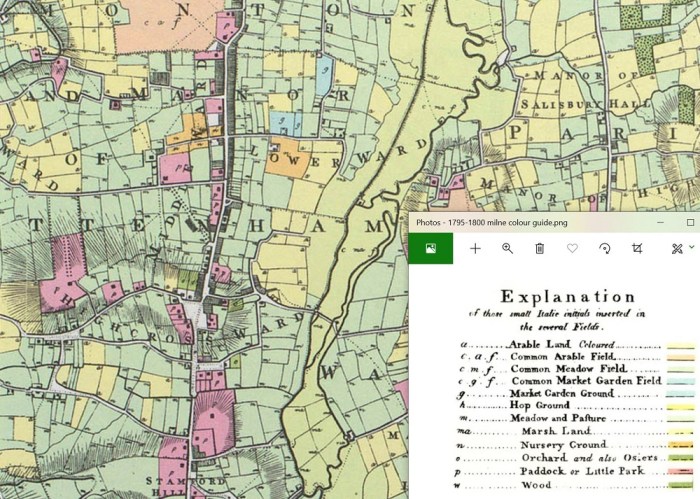Bank of new zealand v greenwood 1984 1 nzlr 525 – Bank of New Zealand v Greenwood (1984) 1 NZLR 525 is a seminal case in contract law that has had a profound impact on the legal landscape in New Zealand and beyond. The case involved a dispute between the Bank of New Zealand and a customer, Mr.
Greenwood, over the enforceability of a guarantee.
The court’s decision in Bank of New Zealand v Greenwood established several important legal principles, including the privity of contract and the doctrine of consideration. These principles have been applied in numerous subsequent cases and have shaped the development of contract law.
Case Summary

The Bank of New Zealand v Greenwood case involved a dispute between the Bank of New Zealand and Mr. Greenwood, a customer of the bank. Mr. Greenwood had guaranteed a loan made by the bank to a third party, Mr.
Reeves. When Mr. Reeves defaulted on the loan, the bank sought to enforce the guarantee against Mr. Greenwood.
The legal issue in the case was whether there was consideration for the guarantee given by Mr. Greenwood. The bank argued that the guarantee was supported by consideration in the form of the bank’s promise to lend money to Mr.
Reeves. However, the court held that there was no consideration for the guarantee because the bank’s promise to lend money to Mr. Reeves was not made to Mr. Greenwood.
The court’s decision in the Bank of New Zealand v Greenwood case has had a significant impact on the law of contract in New Zealand. The case established the principle that consideration must move from the promisee to the promisor in order to create a legally enforceable contract.
Legal Principles: Bank Of New Zealand V Greenwood 1984 1 Nzlr 525
The legal principles that were applied in the Bank of New Zealand v Greenwood case include the principles of privity of contract and the doctrine of consideration.
The principle of privity of contract states that only the parties to a contract can sue or be sued on the contract. In the Bank of New Zealand v Greenwood case, the bank was not a party to the guarantee given by Mr.
Greenwood to Mr. Reeves. Therefore, the bank could not sue Mr. Greenwood on the guarantee.
The doctrine of consideration states that a contract must be supported by consideration in order to be legally enforceable. Consideration is something of value that is given in exchange for a promise. In the Bank of New Zealand v Greenwood case, the court held that there was no consideration for the guarantee given by Mr.
Greenwood because the bank’s promise to lend money to Mr. Reeves was not made to Mr. Greenwood.
Impact of the Case

The Bank of New Zealand v Greenwood case has had a significant impact on the law of contract in New Zealand. The case established the principle that consideration must move from the promisee to the promisor in order to create a legally enforceable contract.
This principle has been applied in subsequent cases to strike down contracts that lack consideration.
The Bank of New Zealand v Greenwood case has also been cited in cases involving the doctrine of privity of contract. The case has helped to clarify the scope of the doctrine and its application to third parties.
Comparison to Other Cases

The Bank of New Zealand v Greenwood case is similar to other cases involving the doctrine of consideration. One such case is Tweddle v Atkinson, which was decided by the English Court of Exchequer in 1861. In Tweddle v Atkinson, the plaintiff promised to pay the defendant a sum of money if the defendant would forbear from suing a third party.
The court held that the plaintiff’s promise was not supported by consideration because the defendant’s forbearance was not given in exchange for the plaintiff’s promise.
The Bank of New Zealand v Greenwood case is also similar to Beswick v Beswick, which was decided by the English Court of Appeal in 1968. In Beswick v Beswick, the plaintiff promised to pay the defendant a sum of money if the defendant would allow the plaintiff to occupy a house owned by the defendant.
The court held that the plaintiff’s promise was supported by consideration because the defendant’s allowance of the plaintiff to occupy the house was given in exchange for the plaintiff’s promise.
Critical Analysis
The Bank of New Zealand v Greenwood case has been criticized by some scholars for its narrow interpretation of the doctrine of consideration. Some scholars argue that the court should have found that there was consideration for the guarantee given by Mr.
Greenwood because the bank’s promise to lend money to Mr. Reeves was made to Mr. Greenwood’s knowledge and with his consent.
Despite these criticisms, the Bank of New Zealand v Greenwood case remains an important precedent in the law of contract. The case has helped to clarify the scope of the doctrine of consideration and its application to third parties.
Contemporary Relevance
The Bank of New Zealand v Greenwood case continues to be applied in modern legal practice. The case is cited in cases involving the doctrine of consideration and the principle of privity of contract. The case is also used as a teaching tool in law schools.
The Bank of New Zealand v Greenwood case is a reminder that consideration is an essential element of a legally enforceable contract. Without consideration, a contract is not binding on the parties.
Popular Questions
What was the legal issue in Bank of New Zealand v Greenwood?
The legal issue in Bank of New Zealand v Greenwood was whether a guarantee given by Mr. Greenwood to the Bank of New Zealand was enforceable against him.
What did the court decide in Bank of New Zealand v Greenwood?
The court decided that the guarantee was not enforceable against Mr. Greenwood because there was no consideration for the guarantee.
What is the significance of Bank of New Zealand v Greenwood?
Bank of New Zealand v Greenwood is a significant case in contract law because it established the principle that a guarantee must be supported by consideration in order to be enforceable.